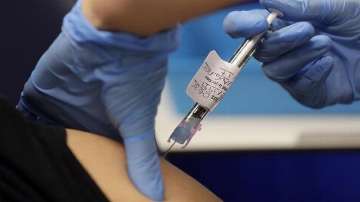Scientists at Oxford University have released more data that confirm coronavirus vaccines made by Pfizer-BioNTech and AstraZeneca both significantly cut the risk of infection after a single dose. In studies published on Friday, researchers said there was no apparent difference in the vaccines' ability to reduce COVID-19 infection rates.
The research has not yet been published in a peer-reviewed journal but is based on data from nose and throat swabs taken from more than 370,000 participants in England and Wales between December and April.
The scientists said that three weeks after people had been given a single dose of either the Pfizer-BioNTech or AstraZeneca vaccine, the rates of all COVID-19 infections fell by 65 per cent. The reduction was bigger after a second dose and the vaccines appeared to protect people against the variant that was first identified in the UK.
Dr. Koen Pouwels, a senior researcher at Oxford University, noted there was some evidence of vaccinated people catching COVID-19 and that there was some limited spread of the disease from people who had been immunised.
“This emphasises the need for everyone to continue to follow guidelines to reduce transmission risk, for example through social distancing and masks,” Pouwels said in a statement.
ALSO READ | Moderna COVID Vaccine has more side effects than Pfizer-BioNTech: Study
ALSO READ | Pfizer, Moderna COVID-19 vaccines highly effective after first shot, suggests study
Latest World News
